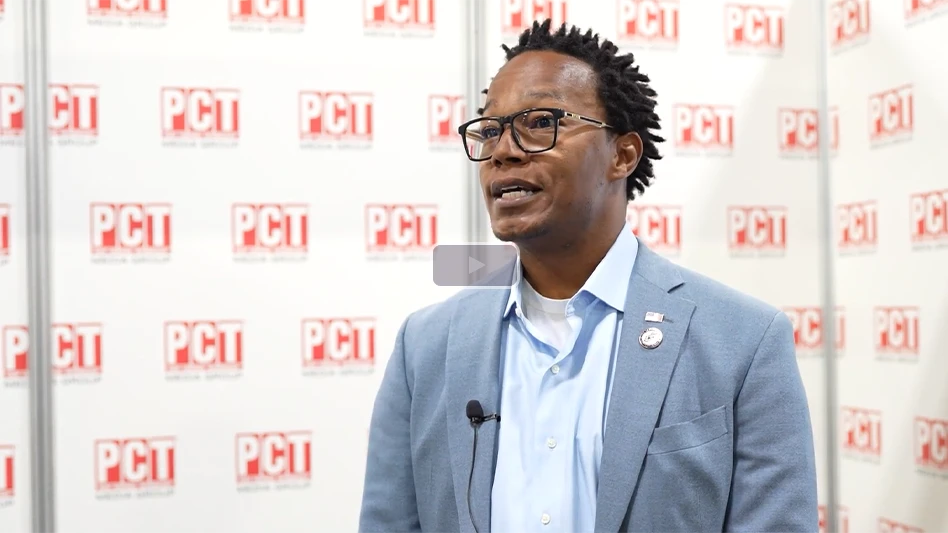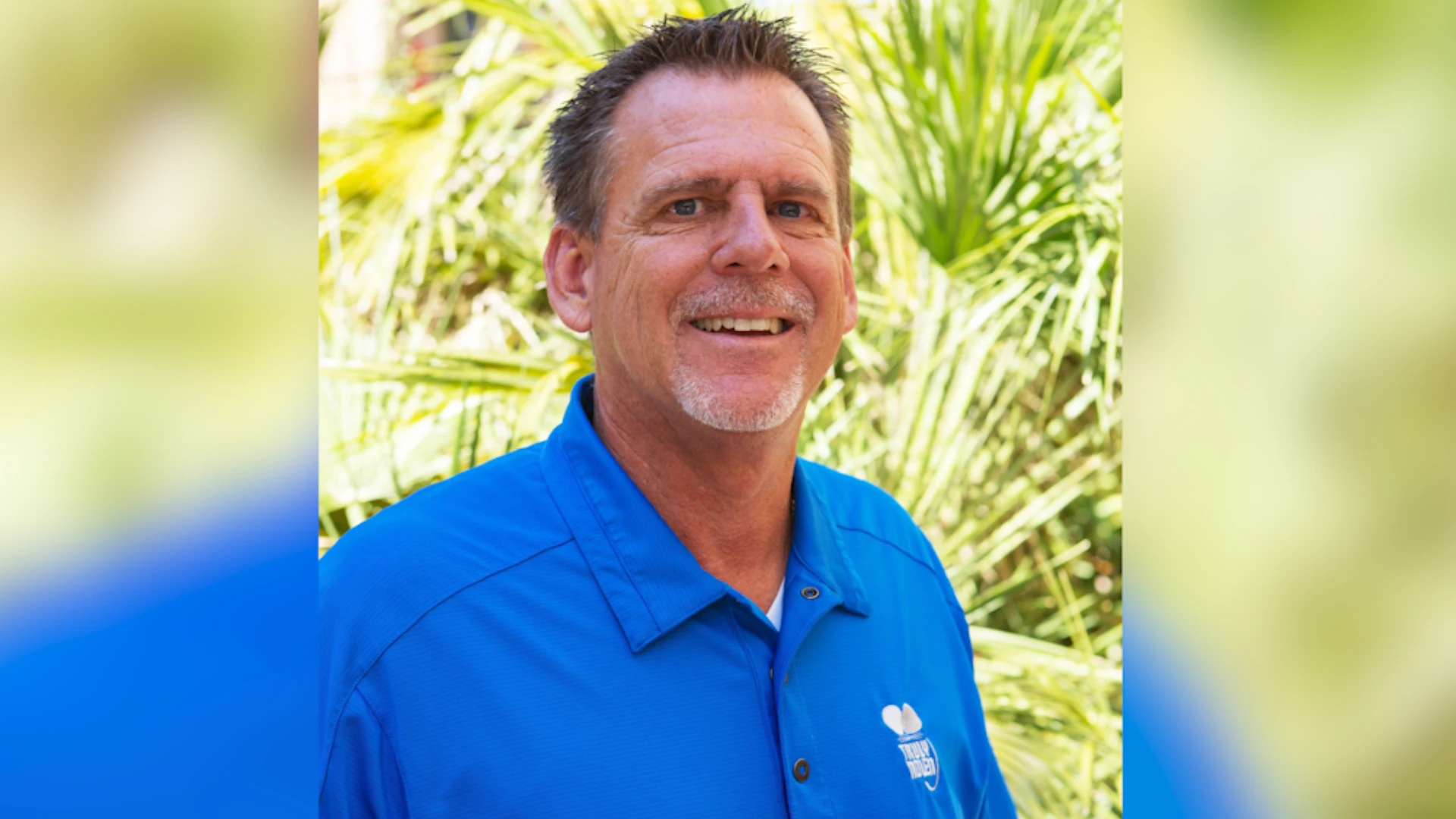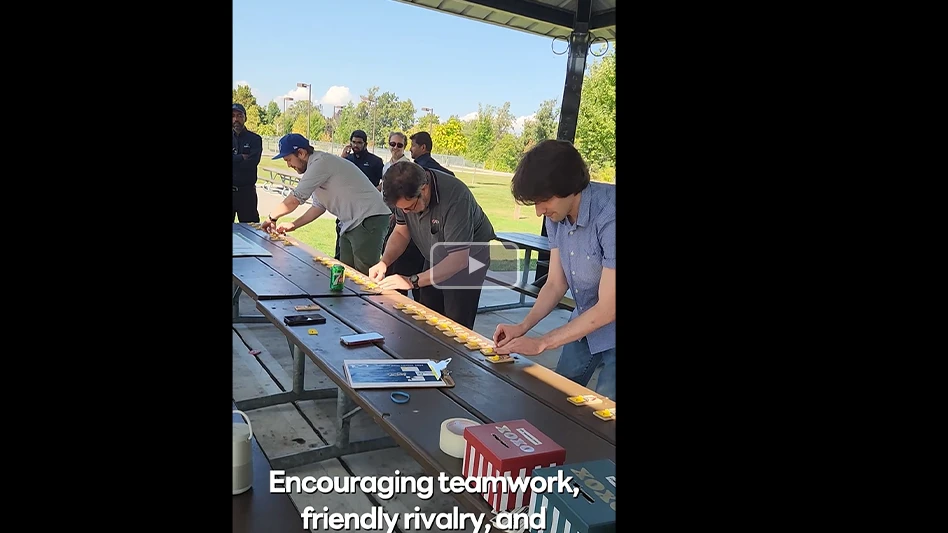After an enjoyable summer that included a great cable television mini-series titled "The Bronx is Burning" I couldn’t resist titling this article: "Buchanan is Burning." For those of you who do not know, this mini-series chronicled the 1977 New York Yankee baseball season. It was very on point and encompassed the entire culture and activities surrounding New York City in that era. I was a big Yankee fan and that season left an indelible impression with me. I was 11 years old then and this series brought back so many fun memories.
The date July 17, 2007, is a day that is etched in my memory. In the span of 24 hours I experienced a full spectrum of emotions. The day got off to a great start as my son James and I played an enjoyable round of golf. Later in the day, we joined my brother, Doug, and his son for an evening at a minor league baseball game. It was, in my mind, one of my favorite days.
WAKE-UP CALL. The telephone rang at 1:48 a.m. As you well know, people who call at that time of night are either high on drugs, or reporting terrible news. As I suspected, the police officer at the other end of the phone line was not calling to invite me over for Sunday dinner. He told me that my building was fine, but that six trucks in my lot were on fire. He requested a list of potentially disgruntled employees and anyone who I had recently terminated. It was suggested I come over to the building right away to deal with the situation. That, my friends, was the best piece of advice I had received in a long while!
As I threw on some clothes my mind was racing. I hopped in my automobile and raced to the scene while pondering my options. As I pulled in, the flames seemed to reach heights of 100 feet. Firefighters were all over and noisy fire trucks with flashing lights littered the area. As I exited my vehicle I heard these incredibly loud POP, POP, POPS. My first thought was the vehicles were exploding. I was told just the tires were popping from the extreme heat. It was a humid and hot night. The flames made things terribly hotter. My building was less than 10 feet away from the fire’s origin, which roared away as firefighters sprayed water. It was madness!
THE AFTERMATH. I am at the scene being interviewed by the police. Arson was suspected and they wanted information on anyone who might have benefitted from my trucks burning up. I was so ready; cameras had been installed on the exterior of the building and I had the entire fire on tape. We viewed the tape together, anxiously awaiting the arsonist’s appearance. It was not to happen. At 12:34 a.m., a flash occurs in one van. It catches fire and burns for about one hour before anyone noticed. The adjacent trucks then caught fire and at about 1:35 a.m., the first fire trucks rolled on the scene. The first truck to catch fire was a power-washing truck. No chemicals — just a power washer, some latex sealant and maintenance equipment — were in the van. Adjacent automobiles included pest and lawn vehicles that contained small amounts of product. What ignited this fire is still unknown today, but arson has been ruled out.
GAINING CONTROL. As I journey back outside I am "attacked" by overzealous volunteer firefighters. They told me a fellow firefighter had passed out and was in transit to the local hospital. They believed the co-worker had passed out because of pesticide fumes from the trucks. "Smoke from the trucks looks and smells different than normal fires," exclaimed one dangerously disconnected gentleman. It was obvious to me these folks have not been involved in too many fires and I needed to gain control of this situation. They had already contacted the board of health and the department of environmental conservation. My stomach started to turn. They scoffed at my suggestion that the firefighter may have passed out from heat exhaustion. I found out later the person who passed out was the wife of the fire chief who enjoyed attending fires. She had a mask on and supposedly is claustrophobic. I got a report back later in the evening that she indeed was overheated and dehydrated. Regretfully, the damage already was done. The board of health and department of environmental conservation were on their way.
A gentleman from the board of health arrived first. He seemed to enjoy telling me I was responsible for any runoff from the fire sight, including oil and gas. With a tremendous amount of energy he let me know about all the tests to the soil and area waterways he was going to conduct on my behalf. "I will be here for at least a week," he said. He demanded I contact an environmental cleanup company to contain the runoff immediately to save my company from paying extraordinary environmental contamination fees. Upon contacting the ones he suggested I was told a certified check was required upon arrival. I reminded them that it was 3 a.m., and banks were not open, but no courtesy was extended. I told Mr. BOH, "I will take my chances and contain the runoff myself." I also provided him with any products that could have been in the vehicles. I warned him I would sue anybody and everybody I could if he attempted to link toxins not associated with my vehicles to JP McHale Pest Management. I am not sure if that was a smart thing to say but I was incredibly frustrated being the most level-headed individual at the scene of my first fire, with these so-called professionals. He seemed to respond and stand down somewhat after that outburst. By having MSDS and product labels easily accessible I contained the challenge this individual posed. He tested every waterway and soil within 2 miles of my building. Nothing was found and he was gone. I contacted a cleanup company, referred by a friend, which did a great job. So, $10,000 later my lot was pure and clean again.
The department of environmental conservation showed up early next morning along with all the media. I was very nervous about how they would interpret this situation. The cleanup process was underway and I provided them with all the requested documents. I must say I was impressed with their approach and level-headed attitude. They inspected the site, wrote up a report and confirmed there was no issue. Whew, one more hurdle cleared.
A MEDIA FRENZY. Next up was the media and they had tons of questions. Our office is located in close proximity to Indian Point Nuclear Power Plant, so many of the questions were in regards to this concern. They sensationalized the suspected arson issue. I answered all questions and they were very fair in their articles and reports. Some were even sensitive to my inability to service customers the next day. I thought that was cool. One reporter did refer to us as a "pesticide company" which bothered me. I told them all we were an environmental service company.
My vehicles were leased so insurance did not cover any loss of work the next day. I was able to secure new vehicles very quickly and Weisburger Insurance worked to get claims handled expeditiously. Checks started arriving shortly thereafter. Let’s move on!
LESSON LEARNED. The lesson here, folks, is plan for the unexpected (see related story, page 60). Cameras, easy access to MSDS/Labels and staying involved helped me contain my losses. These first responders were in way over their head. If I was not around I am confident this would have spun way out of control. As a buddy of mine always said, fail to plan then plan to fail. Here’s hoping that this story generates some thought on your part.
The author is president of JP McHale Pest Management based in Buchanan, N.Y.
*****
It is impossible to know when a disaster or an accident is going to strike. When they do, the ability of your business to weather the storm and quickly resume normal operations may depend on the measures you take today. Here are some items to think about in planning for accidents and disaster:
? Prepare a written inventory of the items and equipment used in your business. You may also want to videotape these items and then store both the inventory and the video in a safe location, away from your property. The video tape will help when it comes to dealing with the insurance company.
? Back up your business computer records at least daily and store a copy of this information in a safe location off-site or better yet, do as most of our clients do and host your computer programs on an offsite server.
? Consider where you could temporarily relocate your business in an emergency to continue operations.
? Construct a financial plan to cover continuing payroll expenses and debt obligations.
? Keep a name and telephone number list of contractors or repair firms who could make emergency temporary repairs or board up windows should some of your buildings be damaged.
? Maintain a list of key suppliers, creditors, customers and employees you need to contact in case your business operations are interrupted. Consider occasionally using suppliers outside your local area so you have a source for items should your local suppliers also be impacted by the disaster.
? Keep a list of your insurance policies with your agent's name and telephone number.
Plan for both big and small disasters. Make sure you have a procedure to deal with auto accidents, chemical spills or larger disasters such as a fire that destroys your building or harm that can be done to a customer’s facility by the actions of one of your employees.
For auto accidents develop a written checklist of what an employee should do in the event of an accident. Items should include making sure all parties to the accident are OK so that the police can be called and the situation can be described to them. Employees should have supervisor contact information, emergency after hours phone numbers, etc. Each vehicle should have an incident report in the glove box for the employee to fill out based on his knowledge and recollection of what happened.
With regard to chemical spills, identify how your state requires such incidents to be dealt with in the state pesticide control regulations and create a written checklist for employees to follow when a spill occurs.
Even small accidents, such as a technician falling through a ceiling, should have a procedure to deal with these situations. Doing so can not only minimize the cost but also give your customer a feeling of security that your company knows how to deal with a bad situation should one occur.
*****
The First 24 Hours Following a Fire
The website www.firesafety.gov is a resource for fire safety and prevention information distributed by the Federal government. Included on the site are tips for procedures to follow during the first 24 hours following a fire. The website warns not to enter a damaged site because fires can rekindle from hidden, smoldering remains. Normally, the fire department will see that utilities (water, electricity and natural gas) are either safe to use or are disconnected before they leave the site. Do not attempt to turn on utilities yourself. Be watchful for structural damage caused by the fire. Roofs and floors may be damaged and subject to collapse. Upon leaving the property, contact your local police departments to let them know the site will be unoccupied. In some cases it may be necessary to board up openings to discourage trespassers.
Beginning immediately, save receipts for any money you spend. These receipts are important in showing the insurance company what money you have spent related to your fire loss and also for verifying losses claimed on your income tax.
If it is safe to do so, try to locate the following items:
- Identification, such as driver's licenses and Social Security cards
- Insurance information
- Valuables, such as credit cards, bank books, cash, etc.
There are many people/entities that should be notified of your relocation, including:
- Your insurance agent/company
- Your mortgage company (also inform them of the fire)
- Your post office
- Any delivery services
- Your utility companies
Do not throw away any damaged goods until after an inventory is made. All damages are taken into consideration in developing your insurance claim. If you are considering contracting for inventory or repair services discuss these plans with your insurance agent/company first.

Explore the September 2010 Issue
Check out more from this issue and find your next story to read.
Latest from Pest Control Technology
- Termite Control Sales Strategies
- NPMA Announces ELP Class of 2025
- Termite Control Tools and Equipment for PMPs
- Choe Reviews Drywood Termite Geographical Hotspots, Latest Research Findings
- Mosquito Squad Announces Rebranding to Mosquito Squad Plus
- Pest Control Equipment: If it’s Critical, Back it Up!
- In Memoriam: Marybeth Wonson
- In Memoriam: Layton Word





